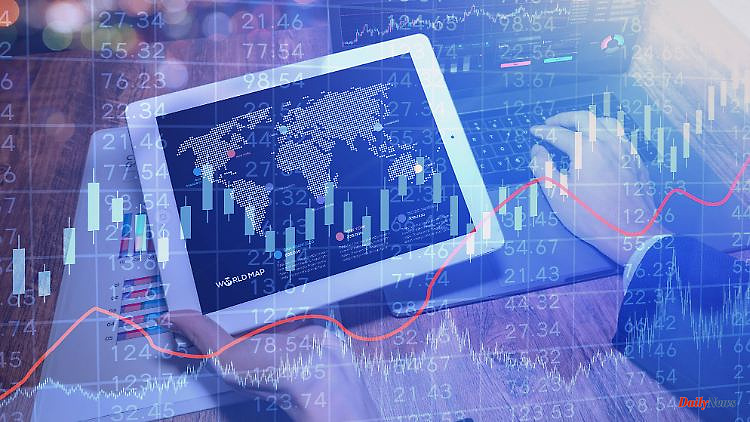An unusual picture is currently emerging on the stock markets: the stock exchanges in Europe are doing better than on Wall Street. Investors should not be discouraged by this. This is due to the different industry weightings.
When has this ever happened? The German share index Dax starts the new year with a plus of around eight percent and thus leaves the S
Now, of course, the question arises as to the reasons for this rather rare outperformance. Is Europe getting through the looming recession any better? Hardly likely. The USA is one of the exporters of oil and gas. The energy crisis is making itself felt much less here than in Europe, which is dependent on oil and gas imports. As a result, energy prices in the United States are also much lower than on the old continent, which has a positive effect on the competitiveness of companies.
The reason for the outperformance is the different sector weighting. The Euro Stoxx 50 includes numerous banks and commodity stocks. They are benefiting from the current environment. After there are positive interest rates again, the credit institutions are earning real money. In 2022, for example, Deutsche Bank posted its best third-quarter pre-tax profit since 2006.
The deposit rate at the European Central Bank (ECB) is now back to two percent. At least before deducting inflation, the banks can again rake in risk-free returns if they park excess liquidity at the ECB. Banks are also operating profitably again when granting corporate or mortgage loans.
For raw material producers, it is the still high price level that is having a positive impact. Although the prices for oil, gas and various industrial metals have fallen noticeably since their highs due to the looming recession, they are still a long way from being cheap.
In the US, on the other hand, the big technology companies dominate the market-leading stock indices. And they're not doing well at the moment. They are currently suffering primarily from slowing growth. Add to that the rise in interest rates, which is driving down the value of future profits, which is depressing company valuations.
Now, however, it is not the look in the rear-view mirror that is decisive, but the look into the future. The decisive factor is whether the current framework conditions will remain in place for a while or whether the environment will change again.
When it comes to interest rates, the current level is actually too high for a recession. However, it is by no means certain that the major western economies will shrink. The American investment bank Goldman Sachs now assumes that Europe will avoid a recession in 2023 and that the economy will grow here. A major reason for this is that China has abandoned its zero-Covid strategy and is restarting its economy. If there is no recession, the banks could continue to benefit from the rise in interest rates.
China is also the main reason why the environment for commodity stocks should remain positive for now. Before Corona, the People's Republic was responsible for around half of global copper demand and was one of the three largest importers of liquefied natural gas (LNG) with Japan and South Korea. China also plays a crucial role for other raw materials. With the reopening of the local economy, the demand for copper, gas and co. should increase noticeably again.
At the same time, it is becoming apparent that a good part of Russian oil and gas production will not reach the world market. The West is largely boycotting energy resources from Russia. And redirecting to Asia only succeeds to a certain extent because the pipeline infrastructure is missing there. And in the west, the raw materials companies have invested too little money in the search for and development of new deposits. All of this could create supply deficits and support commodity prices.
It is important to differentiate between the tech values. It remains difficult for the companies that mainly earn their money with advertising. Because the companies reflexively cut the corresponding budgets if the economy no longer grows sustainably. On the other hand, the prospects for business models that are unique and difficult to copy should brighten again.
In this environment, investors could invest, for example, 25,000 euros as follows:
Right now, defensive dividend stocks are a good fit, as they do well in a high-inflation, high-interest environment. European corporate bonds are also currently offering interest rates of more than three percent with a term of up to three years and good credit ratings.
After all, gold should not be missing from any portfolio. Historically and over longer periods of time, the value of the precious metal has mostly risen two percentage points faster than inflation. There is hardly an investment that is better suited for value retention.
About the author: Michael Wittek heads the portfolio management at the independent asset manager Albrecht, Kitta












